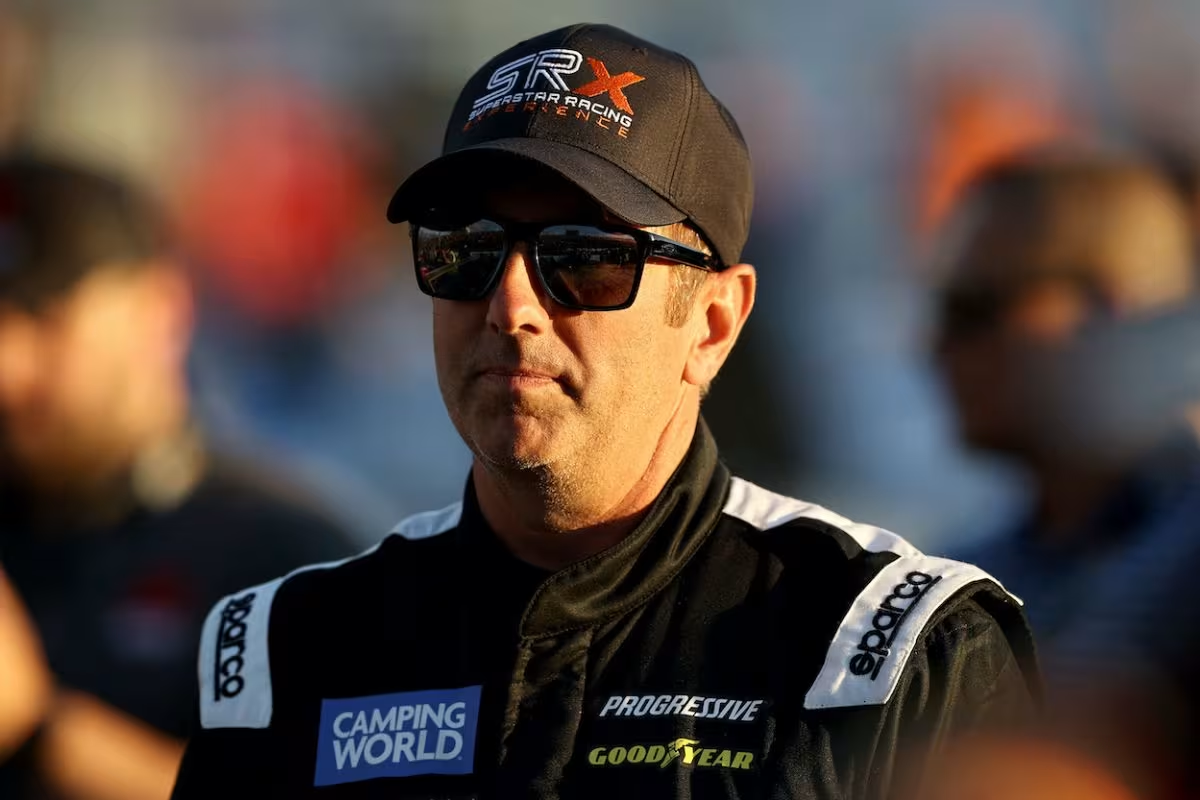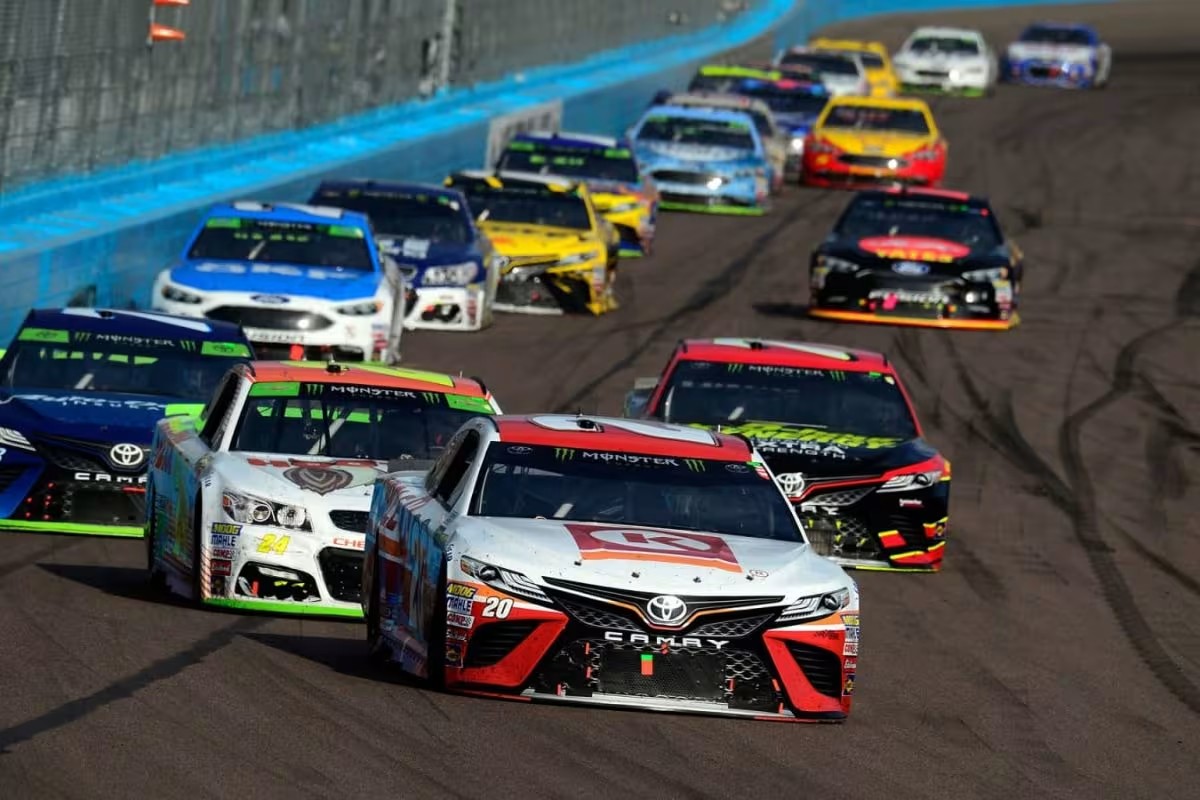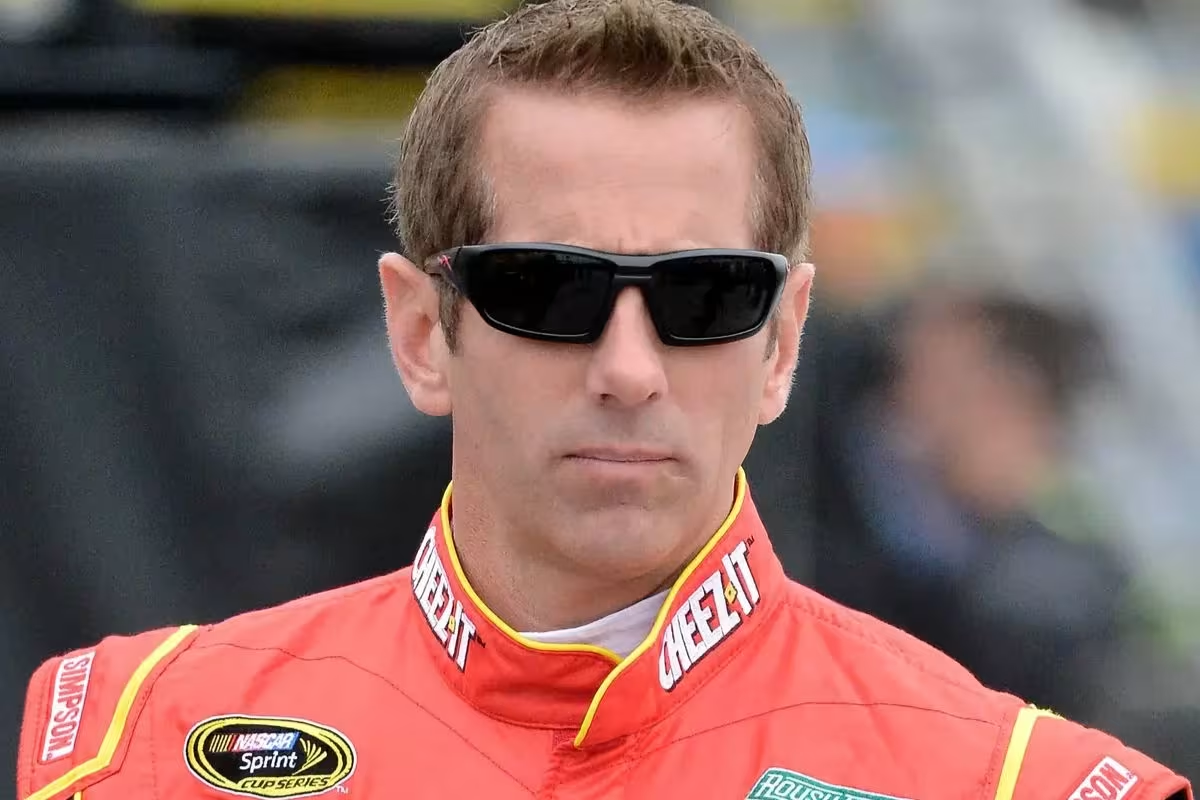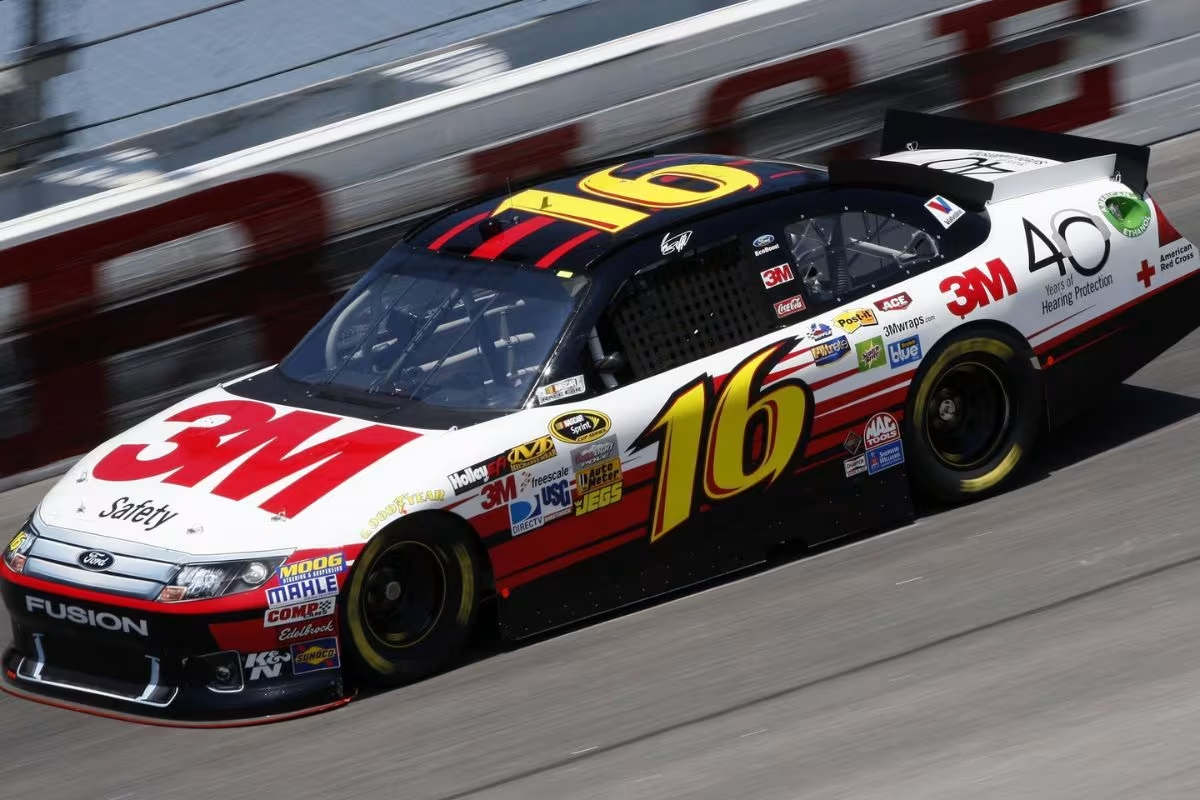Greg Biffle’s Life-Saving Rescue Mission: The unprecedented impact of Hurricane Helen prompted an immediate and multifaceted response from diverse sectors, including the NASCAR community, where Greg Biffle emerged as a pivotal figure. His decision to employ a million-dollar helicopter for rescue operations exemplified the urgency of the situation and demonstrated the potential for individual initiative to effect substantial change in crisis scenarios. As Biffle navigated the complexities of dangerous weather and logistical challenges, the implications of his actions extended beyond mere rescue efforts, raising questions about preparedness and community resilience in the face of natural disasters.
Key Highlights
- Greg Biffle responded to a call for help, utilizing a million-dollar helicopter to reach stranded families after Hurricane Helen.
- The helicopter allowed for swift access to remote areas, delivering essential supplies and conducting rescue missions efficiently.
- Biffle’s actions were amplified through social media, raising awareness and encouraging community support for ongoing humanitarian needs.
- Severe weather and challenging terrain posed obstacles, but teamwork among NASCAR groups ensured successful rescue operations despite these difficulties.
- Biffle’s mission highlighted the critical role of technology and quick response in emergency situations, inspiring others to contribute to relief efforts.
Impact of Hurricane Helen and NASCAR’s Response
The devastation wrought by Hurricane Helen has compelled the NASCAR community to unite in an extraordinary display of solidarity and humanitarian effort. This unprecedented natural disaster has left many families in dire circumstances across multiple states, including Florida, Georgia, Tennessee, North Carolina, and South Carolina.
The immediacy of the crisis has necessitated a departure from the traditional rivalries that characterize the sport, showing a collective commitment to social responsibility and community support among teams and drivers.
Prominent figures such as Rick Hendrick and Joe Gibbs have mobilized their resources to mitigate the adverse impacts of the hurricane. Helicopters owned by these NASCAR giants have been deployed to deliver crucial supplies and facilitate rescue operations. The alarming death toll, which has surpassed 100, highlights the urgency of their response.
In this situation, Joe Gibbs assumed an active role in the Asheville area, while Hendrick Motorsports directed their efforts toward Fairview, focusing on victim safety and relief.
The collaborative nature of this response is significant, as it transcends individual team allegiances, showcasing the NASCAR community’s commitment to humanitarian efforts in times of crisis. The deployment of helicopters not only exemplifies logistical capability but also reinforces the NASCAR ethos of teamwork and resilience.
The engagement of former driver Greg Biffle, alongside influencers like Cleetus McFarland, further highlights the expansive reach of NASCAR’s humanitarian efforts, illustrating the sport’s capacity to serve as a lifeline during catastrophic events.
Greg Biffle’s Involvement in the Rescue Missions
Greg Biffle’s involvement in the rescue missions following Hurricane Helen exemplifies the profound impact that individual members of the NASCAR community can have in times of crisis. Responding to a Facebook message about a family stranded in an Airbnb with young children, Biffle took immediate action, demonstrating a commitment to humanitarian efforts that transcended his racing career.
Biffle’s initiative can be broken down into three critical components:
- Identification of Need: The initial call for assistance highlighted the vulnerability of families unprepared for the hurricane’s aftermath, particularly those isolated in remote locations without adequate supplies.
- Mobilization of Resources: Utilizing a million-dollar helicopter, Biffle was able to reach affected areas swiftly. This logistical capability was paramount in ensuring that help arrived promptly for those in dire situations.
- Public Engagement: Following the successful rescue missions, Biffle shared his experiences on NASCAR Daily with host Shannon Sparke, raising awareness about the ongoing needs of hurricane victims. His candid remarks on social media platforms further amplified the message of community support and preparedness.
“Well, really, what prompted it is, I got a Facebook message that there was a family stranded up in the mountains in an Airbnb with young kids.” – Biffle
His actions serve as an example of the power of individual agency and the collective responsibility that arises in times of dire need, reinforcing the idea that even in the world of competitive racing, compassion and humanity prevail.
The Severity of the Situation from Biffle’s Perspective
While evaluating the aftermath of Hurricane Helen, Biffle articulated the overwhelming severity of the situation, emphasizing the widespread devastation that extended from Georgia to Virginia. His observations painted a grim picture of destruction, with entire communities grappling with the loss of fundamental infrastructure and basic needs.
“The scale of the situation, to be honest with you, I don’t even know how to put it into words. You think about it, from Georgia to North Carolina to Tennessee, all the way to Virginia—my rock mine in Speedwell, Virginia, just outside of Wytheville, got devastated, wiped out. The bridge is gone.” – Biffle
Biffle’s personal connection to the affected regions highlighted the gravity of the crisis; he recalled the obliteration of his rock mine in Speedwell, Virginia, where crucial access routes had been irrevocably altered.
The humanitarian implications of the devastation were severe. Biffle highlighted a critical issue: many families were unable to utilize generators due to a severe fuel shortage, leaving them without power and, consequently, without the means to operate crucial medical machinery.
This reality not only jeopardized the health of vulnerable individuals but also exacerbated the psychological toll on families already on the brink of despair.
In view of such overwhelming challenges, Biffle felt compelled to intervene. His decision to deploy his Bell 206 helicopter was not merely a logistical response; it was a lifeline to those in dire need, a reflection of the resilience of the human spirit amidst chaos.
Challenges Faced During the Rescue Operations
Numerous challenges emerged during the rescue operations as responders navigated the treacherous conditions created by Hurricane Helen. Greg Biffle’s experience exemplifies the difficulties faced by the rescue teams, particularly in reaching families stranded by the weather. Despite their best efforts, the harsh conditions thwarted their attempts to provide immediate assistance.
Three primary challenges were evident during the operations:
- Severe Weather Conditions: Rapidly deteriorating weather hampered visibility and flight capabilities. Biffle recounted a moment when he was just eight miles from a family in distress but had to abandon the mission due to worsening weather.
- Limited Access Points: The geographical terrain posed notable barriers. Biffle attempted three different approaches to reach the stranded family but was unsuccessful. This limited access required meticulous planning and coordination among multiple rescue teams.
- Resource Coordination: As more helicopters descended into the fray, efficient communication became paramount. Biffle noted that the initial two helicopters rapidly increased to about thirty-five by day’s end, including those from prominent NASCAR teams. This influx necessitated a unified command to guarantee that resources were deployed effectively without redundancy.
Despite these challenges, the collaboration among diverse teams, including Hendrick Motorsports and Joe Gibbs Racing, illustrated the resilience and determination of the responders.
The Aftermath of the Hurricane and NASCAR’s Unity
The devastation wrought by Hurricane Helen left a profound impact on affected communities, with many families grappling with the loss of loved ones and homes. The immediate aftermath revealed a landscape marked by destruction; roads were rendered impassable, and vehicles were displaced onto train tracks, underscoring the hurricane’s fury.
In these dire circumstances, the spirit of unity emerged as a defining characteristic of the NASCAR community. Despite the fierce rivalries that often characterize the sport, the aftermath of Hurricane Helen saw a notable convergence of efforts aimed at relief and recovery.
NASCAR drivers, teams, and officials rallied together, transcending competitive boundaries to provide vital support to affected families. This solidarity manifested in multiple forms, including fundraising initiatives, supply drives, and volunteer efforts, all aimed at restoring hope and rebuilding lives.
The collective response from NASCAR highlighted a significant aspect of the sport: when faced with adversity, the community prioritizes human welfare over competition. This unity not only fostered a sense of fellowship among drivers and teams but also reinforced NASCAR’s commitment to its fan base and the broader American populace.
As recovery efforts continue, the resilience and cooperation illustrated in the wake of Hurricane Helen serve as a poignant reminder of the power of solidarity in overcoming tragedy. The NASCAR community stands not just as a group of competitors but as a unified force dedicated to supporting the very lives that fuel their passion for racing.
News in Brief: Greg Biffle’s Life-Saving Rescue Mission
The rescue mission led by Greg Biffle during Hurricane Helen emphasizes the critical role of rapid response in emergency situations. The deployment of a million-dollar helicopter not only facilitated the delivery of vital supplies to stranded families but also served as a catalyst for solidarity within the NASCAR community. This incident exemplifies the capacity for individuals and organizations to unite in times of crisis, reinforcing the imperative for preparedness and compassion in the face of natural disasters.
ALSO READ: Greg Biffle Daytona 500 Exit: Contract Clash or Sponsorship Snag?




